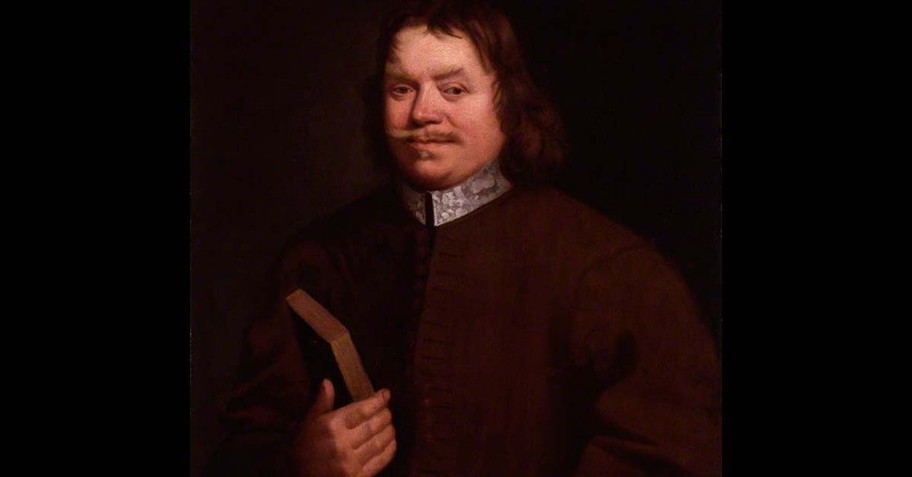What Does the Bible Say about Guilt?

The popular drummer, Dave Grohl, once referred to guilt as a cancer. “Guilt will confine you, torture you, destroy you as an artist. It’s a black wall. It’s a thief.” The actor Jude Law compared guilt to regret as something that is “no good” and that has to be “snipped out.” Angelina Jolie perhaps sums up the contemporary view of guilt the best when she says:
“I don’t believe in guilt; I believe in living on impulse as long as you never intentionally hurt another person. And don’t judge people in your life. I think you should live completely free.”
To many, guilt is a negative emotion. It’s a false feeling that is imposed upon us by the strict rules and judgment woven into our society. Therefore, we must fight these negative feelings. The way, according to the world, to rid ourselves of guilt is to either deny it or find some way to make amends to assuage those feelings.
Does the Bible share this view of guilt? Is guilt a real thing or a false feeling? And how does the Bible speak of our rescue from guilt?
Photo credit: ©Getty Images/Nadia Bormotova

What Does the Bible Say about Guilt?
In Psalm 32 David speaks of his experience of “keeping silent” and as a result his “bones wasted away.” But then he says “I acknowledged my sin to you and I did not cover my iniquity” and as a result he walked in forgiveness and it is implied that this “heaviness” was removed from his spirit. This, I believe, is what people are referring to when they speak of the feelings of guilt. The Bible does speak of these feelings and also makes mention of the conscience.
But this is hardly the dominant concept of guilt within the Bible. In fact, the Bible very rarely speaks of guilt as a feeling. In the Old Testament there are three Hebrew words that encompass the concept of guilt. Terms like ʿāwōn and ḥēṭĕʾ are often translated iniquity or sin and they point not only to the action of transgressing a standard but also the state of guilt which comes as a result. The term most frequently translated “guilt” or “guilty” is the word ʾāšam. Richards explains the concept well:
“This word and its many derivatives focus our attention on the full impact of guilt, which always involves three distinct aspects: (1) there is an act that brings guilt, (2) there is the condition of guilt that results from the act, and (3) there is the punishment that is appropriate to the act.” (Encyclopedia of Bible Words, 322)
In the Old Testament the concept is quite relational. An action puts a breach within a relationship and amends must be made. This judicial component of guilt is what arises as the most dominant theme in the New Testament. Words like opheilo and enochos points to our obligation to someone, as well as our being answerable for our wrongdoing and liable for punishment.
The overarching concept of guilt, then, is that humanity has acted in such a way that brought a breach to relationship with God, self, and others, as well as transgressed a moral code which places us in debt to another. The feelings of guilt, then, are but one of the results of this breach. We feel guilty because we are guilty.
Yes, there is such a thing as false guilt and a weak conscience. And, yes, we have a great accuser who often brings undue shame and false guilt upon us. Yet, this is not primarily the issue which the Bible points to as the most significant problem. It is not false guilt for which Jesus came to die—it is real guilt. As Scripture says “all have sinned and fall short of the glory of God.” No single person is free of guilt.
Photo credit: ©Getty Images/Jantanee Rungpranomkorn

Is Guilt a Sin?
In our world today, it seems that one of the great problems is the feeling of guilt. Perhaps one of the bigger cultural “sins” is to allow yourself to have false feelings of guilt. Negative feelings and emotions are considered toxic. The goal within our overly therapeutic culture is to assuage these dark feelings. To take the example of David from Psalm 32, today he would be called upon to forsake these false feelings and to embrace positive self-talk.
Yet, the Bible speaks differently of guilt and its connection to sin. Feelings of guilt (and other negative emotions) are more like a warning light on your dashboard. It is possible that there is something faulty in the sensors. Your check engine light could be going off even though there is nothing wrong under the hood. But more times than not, if your check engine light is going off it means there is something which needs attention within the motor. Our best bet is to look under the hood (as David did in Psalm 32) and fix the problem. If it is guilt, let us confess.
To continue with our analogy, there is no place in the Bible (at least to my knowledge) that speaks of humanity being culpable for having a faulty sensor. It is more part of the human condition. Rather, the Scriptures predominantly speak of there being an actual problem under the hood. Guilt in itself is not a sin—it is the result of sin. Even false feelings of guilt are the result of our fallen nature.
Photo credit: ©Getty Images/AaronAmat

A Real-World Example of Overcoming Guilt: John Bunyan
John Bunyan, the author of the classic work “The Pilgrim’s Progress,” went through a particularly difficult season early in his walk with Christ. There is some debate as to when Bunyan was actually converted, but we do know that at some point in the late 1640’s he was awakened to his need for the gospel; at some point within the first five years of his marriage he did profess Christ. But we also know that in the early 1650’s Bunyan endured severe trials (a horrendous experience of guilt). Bunyan had what he called “blasphemous thoughts” and he feared he had committed the unpardonable sin. This is how he was feeling:
“And now was I both a burden and a terror to myself, nor did I ever so know, as now, what it was to be weary of my life, and yet afraid to die. Oh, how gladly now would I have been anybody but myself! Anything but a man! And in any condition but mine own! For there was nothing did pass more frequently over my mind, than that it was impossible for me to be forgiven my transgression, and to be saved from wrath to come.”
Bunyan was afraid that he had committed the unpardonable sin. His feelings of guilt were intense. This lasted for some time (upwards of seven years). He had confessed his sin multiple times. He was trusting in Christ, but he still could not overcome this sense of guilt and dread. Would he actually be forgiven? Bunyan tells the story of how God rescued him not only from his actual guilt but from these feelings of guilt:
“One day as I was passing into the field . . . this sentence fell upon my soul. Thy righteousness is in heaven. And methought, withal, I saw with the eyes of my soul Jesus Christ at God’s right hand; there, I say, was my righteousness; so that wherever I was, or whatever I was doing, God could not say of me, he [lacks] my righteousness, for that was just [in front of] him. I also saw, moreover, that it was not my good frame of heart that made my righteousness better, nor yet my bad frame that made my righteousness worse, for my righteousness was Jesus Christ himself, “The same yesterday, today, and forever.” . . .Now did my chains fall off my legs indeed. I was loosed from my afflictions and irons; my temptations also fled away; so that from that time those dreadful scriptures of God [e.g., Hebrews 12:16-17] left off to trouble me; now went I also home rejoicing for the grace and love of God.”
The answer for Bunyan was the same for every one of us—the completed work of Jesus Christ. Feelings of guilt will never go away (fully) while we are still under a sentence of condemnation. And if they did somehow go away that would be terrible news. How horrible would it be to wrongly assume your complete innocence, not knowing that you stood guilty of a horrendous crime?
Photo credit: Wikimedia Commons/Thomas Sadler/Public Domain

What Does the Bible Say about Letting Go of Guilt?
The answer to real guilt is found in turning to Jesus Christ. Just as we saw with John Bunyan, he realized that all of his righteousness was bound up in Christ. He was either “in Christ” – and as such fully free and having His record – or Bunyan stood wholly condemned and under actual guilt. The answer, then, to our guilt is the finished work of Jesus Christ.
The same is true for our feelings of guilt. When someone is unable to “let go of guilt” it is either because they are not trusting in Christ fully, or because they are viewing themselves as having a higher standard than God. If you have repented and confessed sin, then Jesus declares you clean (1 John 1:9). To continue to hold onto guilt is to functionally deny the work of Christ.
On occasion, we still feel guilty because we are not living in integrity. The answer here is confession. And at times we still feel guilty because we have a great Accuser who stands ready to condemn. The best practice here is to agree about our guilt but then proclaim the gospel to our Accuser. Jesus gets the last word. Always. And if he declares us innocent then we are innocent.
Why Do I Still Feel Guilt over Past Sins?
At times, a feeling of guilt over past sins is actually misidentified shame. Guilt is battled by looking at the finished work of Christ. The same is true of shame, yet there are other components to shame. Guilt is often attached to what we have done. Shame is attached to who we are. The answer to both is the finished work of Christ. Meditate upon who Jesus says that you are, instead of what you feel or what you have done.
Remember the dashboard illustration. It is possible that you are not guilty – that you have confessed and there is no issue “under the hood.” It’s possible that our sensors are broken. Sadly, it could be that this is part of the fall. This may be a brokenness which awaits full redemption only in glory. But even still our hope is to proclaim the gospel to our own hearts over and over again.
Photo credit: ©Getty Images/Tinnakorn Jorruang

Jesus Paid It All for Us
One of my favorite stories relating to guilt and forgiveness is likely that of legend—but it certainly seems to fit the character and preaching of Martin Luther. The story goes that at one point, Luther was writing in his study and continued to feel a deep sense of guilt. Satan was accusing Luther and reminding him of all his guilt. To this Luther asked Satan to show him everything—open the scrolls and go down each and every sin.
As the story is told, Satan unrolled numerous scrolls eager to condemn Luther. They were real sins. Things which he had actually done. All things which truly did deserve guilt and wrath. At the end of this time Luther asked if these were all the scrolls. The devil gleefully informed Luther there were many more. It goes on and on like this for quite some time until after a lengthy period, the scrolls are exhausted. The devil with a mountain of sin laid at the feet of Luther is gloating over Luther’s guilt. Luther responded by saying, “Now go and write over every single one of these offenses—the blood of Jesus Christ.”
I don’t know if that story is true—but the concept is. Jesus paid it all. Or he didn’t pay it at all. We are either guilt-free or guilty because we are either in union with Jesus or we are not.
Photo credit: ©Getty Images/manusapon kasosod
Originally published February 18, 2022.





